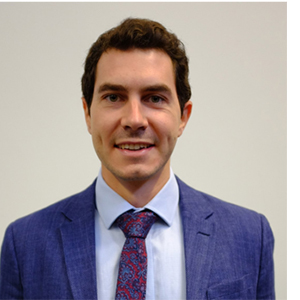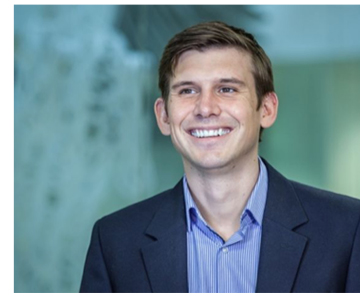At Salesforce we believe that everyone – no matter their background or circumstance – deserves access to quality education and meaningful employment. Unfortunately, children and youth from underserved communities and under-represented backgrounds are less likely to have developed the skills and networks required to achieve meaningful employment.
At the same time, many employers are unable to find qualified talent to fill vacant roles and our schools need to develop further teachers' leadership skills to change this. Our goal is to be a part of the solution, connecting children and youth with the skills and resources needed to succeed in school, and eventually achieve economic mobility through meaningful employment.
Through our philanthropic investments, partnerships and employee volunteering, we empower young people to build the future they deserve by connecting them to greater opportunities in education, training, and employment.
In order to support this work in London, Salesforce.org has invested $1M USD to support School 21 and Ada, the National College for Digital Skills, two organizations that are focused on ensuring we are preparing students and young adults to be part of a more diverse, skilled, and equitable workforce. Additionally, to-date, employees have volunteered more than 2,000 hours as mentors, trainers and other pro bono support.
School 21
We are excited to renew our partnership with School 21 for the innovation they drive and their commitment to doing things differently in the 21st century. They are doing an amazing job in preparing youngsters to be Future Ready by re-imagining education with the focus on educating the whole child on head (academics), heart (character and well-being) and hand (generating ideas, problem solving and making). They place oracy (speaking skills) at the heart of everything they do, teach through interdisciplinary learning, and prioritise wellbeing, through a coaching curriculum.
Ada, the National College for Digital Skills
Even with amazing examples of wonderful schools like School 21, there are still many young adults, especially women and people from disadvantaged backgrounds, who are missing out on career opportunities, primarily in the growing tech sector. Over 130,000 tech jobs are available each year in the U.K, but students are leaving education without sufficient knowledge and experience to get the job.
That is why we’ve also partnered with Ada, the National College for Digital Skills, a college that aims to ensure young adults from all backgrounds can access jobs in the tech sector. They address the lack of high quality digital education by ensuring their curriculum is inline with industry standards, and partner with businesses to ensure students have access to high-quality apprenticeships in order to help them begin a successful career in technology.
Why now?
The education provided by many schools is no longer what the workforce is looking for. Ninety percent of jobs already have a digital component and the digital skills gap costs the U.K. economy £63B per year, the need is evident. For students, if they want great jobs that can transform their lives, they need to be integrated into this space, as research shows that people in tech are 75% more socially mobile than their parents.
Many employers state that they no longer require applicants to present them with the traditional array of exam results to become part of the workforce. Rather, they are looking for well-rounded individuals, who can adapt to ever-changing circumstances and apply a range of skills to the role. We need to ensure that the type of education students receive, fully prepares them for whatever path they choose to take once they complete school and look for a job.
Salesforce supports the School 21 Innovative Leadership program and Ada, the National College for Digital Skills’ apprenticeship program with the aim to close the gap between the education system and the job skills that are required for the 21st century.
Alex Henderson, Deputy Head of Sixth Form and Head of Psychology at School 21
 School 21 for him is an innovative, liberating and expansive experience. Teaching through project-based learning and having access to continuous professional development has given him opportunities to lead and learn on the job. He loves working with young people, it energises him and it allows him to find the best ways to educate sixth form students.
School 21 for him is an innovative, liberating and expansive experience. Teaching through project-based learning and having access to continuous professional development has given him opportunities to lead and learn on the job. He loves working with young people, it energises him and it allows him to find the best ways to educate sixth form students.
He is part of the first cohort of the Innovative Leadership training program sponsored by Salesforce.org. Over the period of one year, Alex will receive specialised one to one coaching, participate in peer review with network schools, and have the opportunities to undertake experiential learning in authentic contexts. This learning space will help him reflect on what leadership means both in his school context and beyond. He expects to further develop his skills through experiences that will allow him to effectively create system change in British education.
Mark Smith, CEO, Ada
 As Ada prepares to train their largest cohort yet of aspiring developers and analysts, Mark is constantly amazed at the commitment and enthusiasm of their employer partners to forge new approaches to hiring fresh, diverse talent into their businesses.
As Ada prepares to train their largest cohort yet of aspiring developers and analysts, Mark is constantly amazed at the commitment and enthusiasm of their employer partners to forge new approaches to hiring fresh, diverse talent into their businesses.
The organisation has been astounded by the demand and desire from the industry to seek out new talent. They now have a challenge to continue to serve their social mission by working with their recruitment partners to achieve mutual goals of 50% of Ada apprentices being young women and 50% coming from low-income households.
The digital revolution is not just changing the types of jobs available, it is changing how employers need to identify, assess, recruit and train talent. The attitude and appetite to think, create & develop digitally are more valuable than outdated qualifications recognising linear learning. In collaboration, Higher Level Apprentices and six form students, their teachers and their curriculum, embody this dynamic iterative approach to learning that means not only are they successful in their formal learning - but they are ready to embrace the dynamic work cultures their employers welcome them into.







